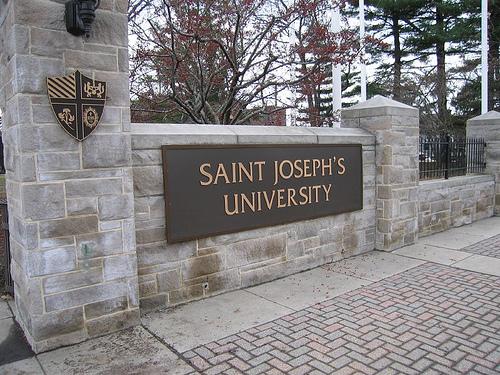Why a field of study extends beyond a fixed area
“Name. Year. And major?”
Your major represents a defining factor of your educational experience at Saint Joseph’s University. It’s the term that follows your name, integral to your university identity, and ultimately the path that could guide you to your future. Regardless of your field of study, your major here at St. Joe’s gives your college education direction. But sometimes, it can lead to tunnel vision regarding your present and future endeavors. Whether you’re experimenting in the science labs or crunching numbers in the Wall Street Trading Room, we are all at risk for being stuck inside the “major” bubble. It can be difficult to focus on our gen-eds over our required major courses; however, if we only prioritize our field of study, we all lose a bit of perspective. Opening ourselves up to new academic experiences can help us flourish during our time in college and beyond.
For the week of Feb. 27, the Office of Teaching and Learning hosted an “open classroom” program where professors were invited to visit each other’s classrooms as a learning experience. The event encouraged faculty to observe what strategies or perspectives could function in their own classrooms. Its success speaks for itself: 24 courses and 56 sections participated in the event.
Through the variety of courses offered in the open classroom teaching, professors learned from each other and then discussed their thoughts during a reception at the end of the week. This kind of university community-building has a similar purpose to St. Joe’s General Education Program (GEP) requirements, a core curriculum built into our education that shapes future graduates with open minds.
According to the GEP website, “General education is essential to the University’s mission, providing all students with the broad knowledge, essential skills, appreciation of diversity, and ethically informed perspective needed by those who would aspire to be “men and women for others.”
If professors and administrators are taking strides to bridge gaps between majors, students should as well. One way students currently do this is through the First Year Seminar Program (FYS). FYS helps students achieve some of these ideals, and prompts relationships among students across the university. The spring 2017 roster features classes like Social Entrepreneurship and Reacting to the Past, encouraging students to find a unique course that interests them.
Prospective students should know that the FYS is a time to explore areas beyond their major or even associated college. But sometimes, we can see our GEP’s as more of a burden than an opportunity. If we all have to take these courses, we should enter them with the mindset of taking advantage of the diverse class offerings.
Branching out into various studies is a crucial first step in stimulating growth among a range of academic fields. Even though attending events or signing up for classes that may not directly relate to your major may seem fruitless at first, you would be missing out on an opportunity if you didn’t explore beyond your “Degreeworks” requirements. We all have a responsibility to engage with the larger academic community at hand, rather than only one department.
Professors have a responsibility to use multiple lenses to analyze their texts and foster students’ potential in their courses. Students should be open to exploring many perspectives of the same topic, allowing for a larger crossover between departments. Business and liberal arts are not entirely separate, but instead the studies layer our education with many unique perspectives.
We have to acknowledge as well that our university can not be split down the middle; each student has their own personal passions within their education and generalizations gloss over this. Speak with students in other majors about their course work; attend events sponsored by different parts of the university; enroll in a class that blurs finite boundaries and stimulates critical thinking from a new angle.
We are not defined by our major, just as we are not synonymous with our class year. It can speak to our identity, but should not limit our curiosity with regards to other subject material. Majors are a marker that signify our interests, not a boundary drawn in the sand labeled off-limits. If we allow ourselves to remain solely in the learning environment we are most comfortable with, we are not tapping into our own full potential. Alternatively, if we actively seek new learning styles, methods, and subject material outside our major departments, we use St. Joe’s to its fullest extent and dare to do more with our four years.
Learning was always meant to challenge people – students, faculty, staff, and administrators alike. Through education, we are free from ignorance and empowered by knowledge of the world around us. But the world is vast. Lifelong learning begins on graduation days and will remain with us throughout the rest of our lives. Regardless of your future career plans, majors are a starting point, not the finish line. These are the questions we have to ask ourselves as students of a greater calling.
The tension between what we know, and have yet to know, is beautiful. Embrace it.








































